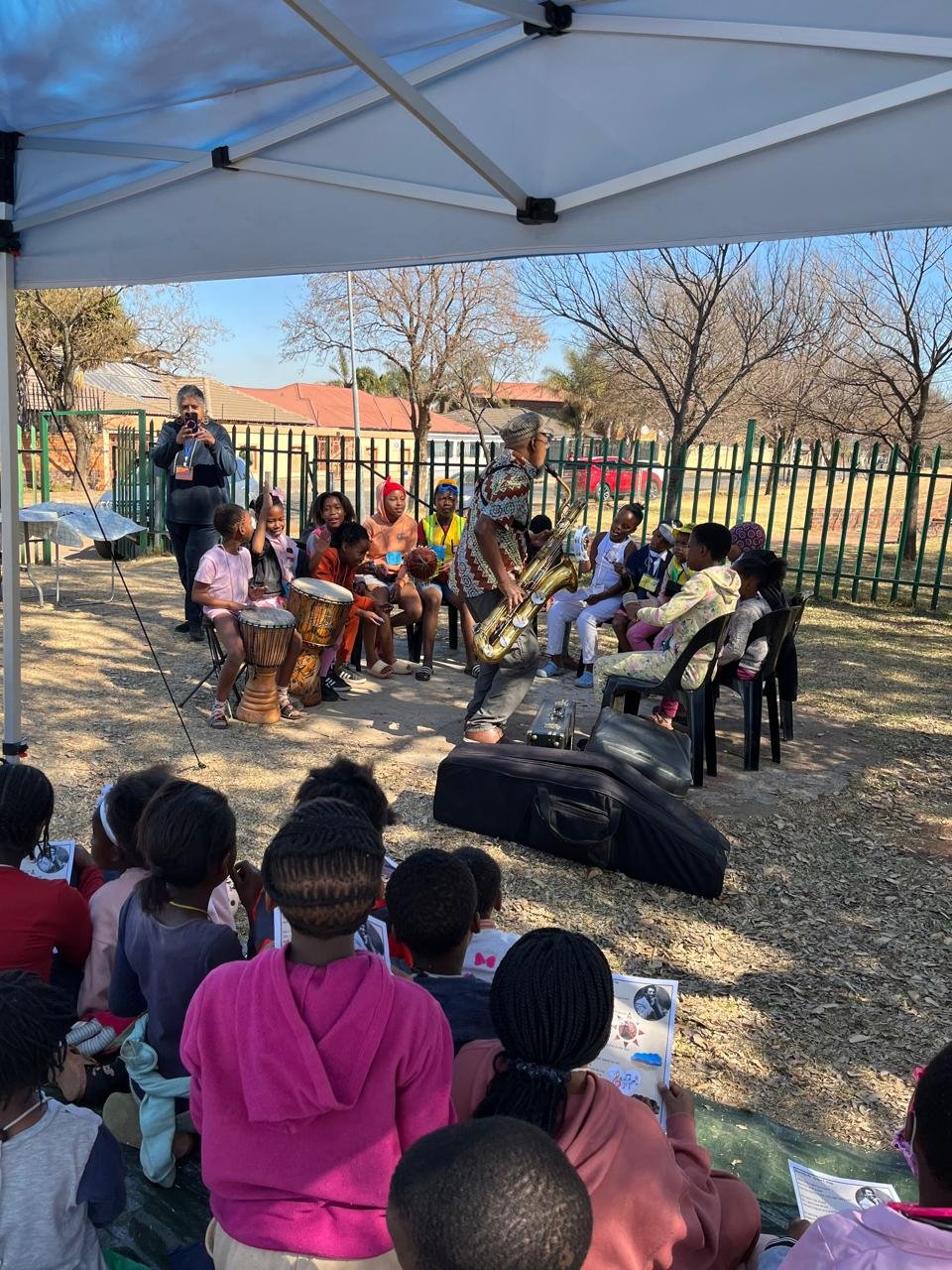The Nyuki Fund—named after "nyuki," the Swahili word for "bees"—embodies the spirit of collaboration, productivity, and support for initiatives that advance the common good. Out of this fund, several impactful projects have taken flight: Crosby I Care, Transforming Slovo, Play in the Park, and the Caroline Street Food Garden. Each of these offshoots has grown organically from the Nyuki Fund's mission, focusing on creating vibrant, inclusive spaces that foster dignity, community pride, and opportunities for growth in our neighborhood and beyond.
-
Our first initiative was a park cleanup, creating opportunities for two Slovo Park residents from the nearby informal settlement to earn a stipend while helping keep the space welcoming and clean. Rehana observed, “It’s pointless to always complain without acting.” Once neglected, the park now receives daily care, funded by The Barefoot Facilitator, with recent repairs bringing dignity back to a space frequented by the community. Rehana reflected, “It’s wonderful to start the day early, listening to birds, breathing fresh air, and seeing people jogging, exercising, and simply enjoying the space.”
In the afternoons, young soccer enthusiasts from Slovo Park often gather to show off their skills. “A new soccer ball might seem small, but I hope it kicks off a larger game – one that fosters care for people, place, and planet,” said Rehana.
With Crosby – I Care, we aim to continue supporting initiatives that encourage residents to take ownership of our shared spaces, cultivating pride in our neighborhood. Instead of constantly moving in search of better places, we can create those spaces right where we are.
In keeping with this spirit, the initiative has grown. Beyond cleanups, we’ve organized street parties and lively rugby watch parties in the park, especially during the World Cup, to foster a strong community connection and celebrate togetherness. Seeing the joy in the eyes of young players and community members reminds us of our mission, motivating us to find even more ways to support local development.
-
As part of an outreach program in partnership with the Nyuki Fund, The Barefoot Facilitator set out to bring our concepts and theories on community development, local economies, digital skills, and entrepreneurship to life. Driven by our commitment to creating dignified, meaningful work opportunities for all, we collaborated closely with residents of a nearby informal settlement. This effort gave rise to the Transforming Slovo Initiative.
Our goal was to make a tangible impact by enhancing communal spaces and facilities. Through donations and fundraising efforts, we transformed a container into a digital skills hub, installed solar panels, planted trees, and laid astroturf to create a vibrant community area, Slovo Space. Alongside these physical upgrades, we established mentorship programs and collaborated with local stakeholders and community activists to bring these spaces to life, fostering growth and opportunity for all involved.
-
The Play in the Park initiative takes place every second Saturday of the month, transforming the park into a vibrant community hub. Each gathering is unique, featuring guest appearances from local groups like the Brixton Choir, Play Africa, and various authors. With activities that range from art projects to literacy-focused events, each month brings a new theme and fresh energy.
Volunteers play a key role in bringing the day to life, creating a warm, welcoming atmosphere where children from the surrounding community—and their parents—can come together to play, learn, and connect. This initiative not only fosters creativity and learning but also builds a strong sense of community among families, all while celebrating the joy of shared spaces and communal play.
-
We started a vegetable garden on an empty plot of land, using community resources and volunteer support to bring it to life. This initiative, inspired by principles of "gorilla farming," aims to promote local food security by transforming unused spaces into productive, sustainable sources of fresh produce. Community members have come together to cultivate the garden, fostering a shared sense of responsibility and pride while also building resilience against food insecurity. The garden has quickly become a communal space where volunteers learn, collaborate, and work together to create a reliable source of healthy, locally grown food for everyone involved.

